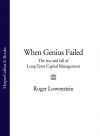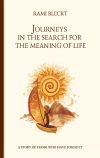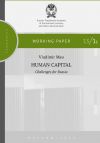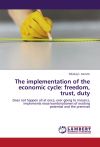Правообладателям!
Представленный фрагмент книги размещен по согласованию с распространителем легального контента ООО "ЛитРес" (не более 20% исходного текста). Если вы считаете, что размещение материала нарушает ваши или чьи-либо права, то сообщите нам об этом.Читателям!
Оплатили, но не знаете что делать дальше?
Текст бизнес-книги "Grand Pursuit: A Story of Economic Genius"
Автор книги: Sylvia Nasar
Раздел: Жанр неизвестен
Текущая страница: 1 (всего у книги 5 страниц)

GRAND PURSUIT
Sylvia Nasar
THE STORY OF
ECONOMIC GENIUS

Dedication
For my parents
Contents
Cover
Title Page
Dedication
Preface: The Nine Parts of Mankind
Act I: Hope
Prologue: Mr. Sentiment Versus Scrooge
Chapter I: Perfectly New: Engels and Marx in the Age of Miracles
Chapter II: Must There Be a Proletariat? Marshall’s Patron Saint
Chapter III: Miss Potter’s Profession: Webb and the Housekeeping State
Chapter IV: Cross of Gold: Fisher and the Money Illusion
Chapter V: Creative Destruction: Schumpeter and Economic Evolution
Act II: Fear
Prologue: War of the Worlds
Chapter VI: The Last Days of Mankind: Schumpeter in Vienna
Chapter VII: Europe Is Dying: Keynes at Versailles
Chapter VIII: The Joyless Street: Schumpeter and Hayek in Vienna
Chapter IX: Immaterial Devices of the Mind: Keynes and Fisher in the 1920s
Chapter X: Magneto Trouble: Keynes and Fisher in the Great Depression
Chapter XI: Experiments: Webb and Robinson in the 1930s
Chapter XII: The Economists’ War: Keynes and Friedman at the Treasury
Act III: Confidence
Prologue: Nothing to Fear
Chapter XIII: Exile: Schumpeter and Hayek in World War II
Chapter XIV: Past and Future: Keynes at Bretton Woods
Chapter XV: The Road from Serfdom: Hayek and the German Miracle
Chapter XVI: Instruments of Mastery: Samuelson Goes to Washington
Chapter XVII: Grand Illusion: Robinson in Moscow and Beijing
Chapter XVIII: Tryst with Destiny: Sen in Calcutta and Cambridge
Epilogue: Imagining the Future
Notes
Index
Picture Section
Acknowledgments
About the Author
Also by Sylvia Nasar
Credits
Copyright
About the Publisher
Preface The Nine Parts of Mankind
The experience of nations with well-being is exceedingly brief. Nearly all, throughout history, have been very poor.
John Kenneth Galbraith, The Affluent Society, 19581
In a Misery of this Sort, admitting some few Lenities, and those too but a few, nine Parts in ten of the whole Race of Mankind drudge through Life.
Edmund Burke, A Vindication of Natural Society, 17562
The idea that humanity could turn tables on economic necessity—mastering rather than being enslaved by material circumstances—is so new that Jane Austen never entertained it.
Consider the world of Georgian opulence that the author of Pride and Prejudice inhabited. A citizen of a country whose wealth “excited the wonder, the astonishment, and perhaps the envy of the world” her life coincided with the triumphs over superstition, ignorance, and tyranny we call the European Enlightenment.3 She was born into the “middle ranks” of English society when “middle” meant the opposite of average or typical. Compared to Mr. Bennett in Pride and Prejudice or even the unfortunate Ms. Dashwoods in Sense and Sensibility,4 the Austens were quite impecunious. Nonetheless, their income of £210 a year exceeded that of 95 percent of English families at the time.5 Despite the “vulgar economy” that Austen was required to practice to prevent “discomfort, wretchedness and ruin,”6 her family owned property, had some leisure, chose their professions, went to school, had books, writing paper, and newspapers at their disposal. Neither Jane nor her sister Cassandra were forced to hire themselves out as governesses—the dreaded fate that awaits Emma’s rival Jane—or marry men they did not love.
The gulf between the Austens and the so-called lower orders was, in the words of a biographer, “absolute and unquestioned.”7 Edmund Burke, the philosopher, railed at the plight of miners who “scarce ever see the Light of the Sun; they are buried in the Bowels of the Earth; there they work at a severe and dismal Task, without the least Prospect of being delivered from it; they subsist upon the coarsest and worst sort of Fare; they have their Health miserably impaired, and their Lives cut short.”8 Yet in terms of their standard of living, even these “unhappy wretches” were among the relatively fortunate.
The typical Englishman was a farm laborer.9 According to economic historian Gregory Clark, his material standard of living was not much better than that of an average Roman slave. His cottage consisted of a single dark room shared night and day with wife, children, and livestock. His only source of heat was a smoky wood cooking fire. He owned a single set of clothing. He traveled no farther than his feet could carry him. His only recreations were sex and poaching. He received no medical attention. He was very likely illiterate. His children were put to work watching the cows or scaring the crows until they were old enough to be sent into “service.”
In good times, he ate only the coarsest food—wheat and barley in the form of bread or mush. Even potatoes were a luxury beyond his reach. (“They are very well for you gentry but they must be terribly costly to rear,” a villager told Austen’s mother).10 Clark estimates that the British farm laborer consumed an average of only 1500 calories a day, one third fewer than a member of a modern hunter-gatherer tribe in New Guinea or the Amazon.11 In addition to suffering chronic hunger, extreme fluctuations in bread prices put him at risk of outright starvation. Eighteenth-century death rates were extraordinarily sensitive to bad harvests and wartime inflations.12 Yet the typical Englishman was better off than his French or German counterpart, and Burke could assure his English readers that this “slavery with all its baseness and horrors that we have at home is nothing compared to what the rest of the world affords of the same Nature.”13
Resignation ruled. Trade and the Industrial Revolution had swelled Britain’s wealth, as the Scottish philosopher Adam Smith predicted in The Wealth of Nations in 1776. Still, even the most enlightened observers accepted that these could not trump God’s condemnation of the mass of humanity to poverty and “painful toil . . . all the days of your life.” Stations in life were ordained by the Deity or nature. When a loyal retainer died, he or she might be praised for “having performed the duties of the Station of life in which he had been pleased to place her in this world.”14 The Georgian reformer Patrick Colquhoun had to preface his radical proposal that the state educate the children of the poor with assurances that he did not mean that they “should be educated in a manner to elevate their minds above the rank they are destined to fill in society” lest “those destined for laborious occupations and an inferior situation in life” become discontented.15
In Jane Austen’s world everybody knew his or her place, and no one questioned it.
A mere fifty years after her death, that world was altered beyond recognition. It was not only the “extraordinary advance in wealth, luxury and refinement of taste”16 Or the unprecedented improvement in the circumstances of those whose condition was assumed to be irremediable. The late Victorian statistician Robert Giffen found it necessary to remind his audience that in Austen’s day wages had been only half as high and “periodic starvation was, in fact, the condition of the masses of working men throughout the kingdom fifty years ago . . .”17 It was the sense that what had been fixed and frozen through the ages was becoming fluid. The question was no longer if conditions could change but how much, how fast, and at what cost. It was the sense that the changes were not accidental or a matter of luck, but the result of human intention, will, and knowledge.
The notion that man was a creature of his circumstance, and that those circumstances were not predetermined, immutable, or utterly impervious to human intervention is one of the most radical discoveries of all time. It called into question the existential truth that humanity was subject to the dictates of God and nature. It implied that, given new tools, humanity was ready to take charge of its own destiny. It called for cheer and activity rather than pessimism and resignation. Before 1870 economics was mostly about what you couldn’t do. After 1870, it was mostly about what you could do.
“The desire to put mankind into the saddle is the mainspring of most economic study,” wrote Alfred Marshall, the father of modern economics. Economic possibilities—as opposed to spiritual, political, or military ones—captured the popular imagination. Victorian intellectuals were obsessed with economics and an extraordinary number aspired to produce a great work in that field. Inspired by advances in natural sciences, they began to fashion a tool for investigating the “very ingenious and very powerful social mechanism” that is creating not just unparalleled material wealth, but a wealth of new opportunities. Ultimately, the new economics transformed the lives of everyone on the planet.
Rather than a history of economic thought, the book in your hands is the story of an idea that was born in the golden age before World War I, challenged in the catastrophic interwar years by two world wars, the rise of totalitarian governments, and a great depression, and was revived in a second golden age in the aftermath of World War II.
Alfred Marshall called modern economics an “Organan,” ancient Greek for tool, not a body of truths but an “engine of analysis” useful for discovering truths and, as the term implied, an implement that would never be perfected or completed but would always require improvement, adaptation, innovation. His student John Maynard Keynes called economics an “apparatus of the mind” that, like any other science, was essential for analyzing the modern world and making the most of its possibilities.
I chose protagonists who were instrumental in turning economics into an instrument of mastery. I chose men and women with “cool heads but warm hearts”18 who helped build Marshall’s “engine” and innovated Keynes’s “apparatus.” I chose figures whose temperaments, experiences and genius led them, in response to their own times and places, to ask new questions and propose new answers. I chose figures that took the story from London in the 1840s around the world, ending in Calcutta at the turn of the twenty-first century. I tried to picture what each of them saw when they looked at their world, and to understand what moved, intrigued, inspired them. All of these thinkers were searching for intellectual tools that could help solve what Keynes called “the political problem of mankind: how to combine three things: economic efficiency, social justice and individual liberty.”19
As Keynes’s first biographer Roy Harrod explained, that protean figure considered the artists, writers, choreographers, and composers he loved and admired to be “the trustees of civilization.” He aspired to a humbler but no less necessary role for economic thinkers like himself: to be “the trustees, not of civilization, but of the possibility of civilization.”20
Thanks in no small part to such trustees, the notion that the nine parts of mankind could free itself from its age-old fate took hold during the Victorian era in London. From there it spread outward like ripples in a pond until it had transformed societies around the globe.
It is still spreading.
Act I HOPE
Prologue Mr. Sentiment Versus Scrooge
It was the worst of times.
When Charles Dickens returned from his triumphant American reading tour in June 1842, the specter of hunger was stalking England.1 The price of bread had doubled after a string of bad harvests. The cities were mobbed by impoverished rural migrants looking for work or, failing that, charity. The cotton industry was in the fourth year of a deep slump, and unemployed factory hands were forced to rely on public relief or private soup kitchens. Thomas Carlyle, the conservative social critic, warned grimly, “With the millions no longer able to live . . . it is too clear that the Nation itself is on the way to suicidal death.”2
A firm believer in education, civil and religious liberty, and voting rights, Dickens was appalled by the upsurge in class hatred.3 In August a walkout at a cotton mill turned violent. Within days the dispute had escalated into a nationwide general strike for universal male suffrage, called by leaders of a mass movement for a “People’s Charter.”4 The Chartists had taken up the principal cause of middle-class Radicals in Parliament—one man, one vote—into the streets. The Tory government of Prime Minister Robert Peel promptly dispatched red-coated marines to round up the agitators. Rank-and-file strikers began drifting back to their factories, but Carlyle, whose history of the French revolution Dickens read and reread, warned darkly that “revolt, sullen, revengeful humor of revolt against the upper classes . . . is more and more the universal spirit of the lower classes.”5
In the glittering London drawing rooms where lords and ladies lionized him, Dickens’s republican sympathies were as hard to overlook as his garish ties. After running into the thirty-year-old literary sensation for the first time, Carlyle described him patronizingly as “a small compact figure, very small,” adding cattily that he was “dressed a la D’Orsay rather than well”—which is to say as flash as the notorious French count.6 Carlyle’s best friend, the Radical philosopher John Stuart Mill, was reminded of Carlyle’s description of a Jacobin revolutionary with “a face of dingy blackguardism radiated by genius.”7 At fashionable midnight suppers the Chartist “uprising” provoked bitter arguments. Carlyle backed the Prime Minister who insisted that harsh measures were necessary to keep radicals from exploiting the situation and that the truly needy were already getting help. Dickens, who swore that he “would go farther at all times to see Carlyle than any man alive,”8 nonetheless maintained that prudence and justice both demanded that the government grant relief to the able-bodied unemployed and their families.
The Hungry Forties revived a debate that had raged during the famine years, 1799 to 1815, of the Napoleonic Wars. At issue was the controversial law of population propounded by the Reverend Thomas Robert Malthus. A contemporary of Jane Austen and England’s first professor of political economy, Malthus was a shy, softhearted Church of England clergyman with a harelip and a hard-edged mathematical mind. While still a curate, he had been tormented by the hunger in his rural parish. The Bible blamed the innate sinfulness of the poor. Fashionable French philosophers like his father’s friend the Marquis de Condorcet blamed the selfishness of the rich. Malthus found neither explanation compelling and felt bound to search for a better one. An Essay on the Principle of Population, published first in 1798 and five more times before his death in 1834, inspired Charles Darwin and the other founders of evolutionary theory and prompted Carlyle to dismiss economics as the “dismal science.”9
The fact that Malthus sought to explain was that, in all societies and all epochs including his own, “nine parts in ten of the whole race of mankind” were condemned to lives of abject poverty and grinding toil.10 When not actually starving, the typical inhabitant of the planet lived in chronic fear of death by hunger. There were prosperous years and lean ones, richer and poorer regions, yet the standard of life never departed for long from subsistence.
In attempting to answer the age-old question “Why?” the mild-mannered minister anticipated not only Darwin but Freud. Sex, he argued, was to blame. Whether from observing the wretched lives of his parishion-ers, the influence of natural scientists who were beginning to regard man as an animal, or the arrival of his seventh child, Malthus had concluded that the drive to reproduce trumped all other human instincts and abilities, including rationality, ingenuity, creativity, even religious belief.
From this single provocative premise, Malthus deduced the principle that human populations tended always and everywhere to grow faster than the food supply. His reasoning was deceptively simple: Picture a situation in which the supply of food is adequate to sustain a given population. That happy balance can’t last any more than could Adam and Eve’s tenure in paradise. Animal passion drives men and women to marry sooner and have bigger families. The food supply, meanwhile, is more or less fixed in all but the very long run. Result: the amount of grain and other staples that had just sufficed to keep everyone alive would no longer be enough. Inevitably, Malthus concluded, “the poor consequently must live much worse.”11
In any economy where businesses compete for customers and workers for jobs, an expanding population meant more households contending for the food supply, and more workers competing for jobs. Competition would drive down wages while simultaneously pushing food prices higher. The average standard of living—the amount of food and other necessities available for each person—would fall.
At some point, grain would become so expensive and labor so cheap that the dynamic would reverse itself. As living standards declined, men and women would once again be forced to postpone marriage and have fewer children. A shrinking population would mean falling food prices as fewer households competed for the available food. Wages would rise as fewer workers competed for jobs. Eventually, as the food supply and population moved back into balance, living standards would creep back to their old level. That is, unless Nature’s “great army of destruction”12—war, disease, and famine—intervened to hurry the process, as happened, for example, in the fourteenth century, when the Black Plague wiped out millions, leaving behind a smaller population relative to the output of food.
Tragically, the new balance would prove no more durable than the original one. “No sooner is the laboring class comfortable again,” Malthus wrote sadly, “than the same retrograde and progressive movements with respect to happiness are repeated.”13 Trying to raise the average standard of living is like Sisyphus trying to roll his rock to the top of the hill. The faster Sisyphus gets almost there, the sooner he triggers the reaction that sends the boulder tumbling down the slope again.
Attempts to flout the law of population were doomed. Workers who held out for above-market wages wouldn’t find jobs. Employers who paid their workers more than their competitors did would lose their customers as higher labor costs forced them to raise prices.
For Victorians, the most objectionable implication of Malthus’s law was that charity might actually increase the suffering it was intended to ease—a direct challenge to Christ’s injunction to “love thy neighbor as thyself.”14 In fact, Malthus was extremely critical of the traditional English welfare system, which provided relief with few strings attached, for rewarding the idle at the expense of the industrious. Relief was proportional to family size, in effect encouraging early marriage and large families. Conservative and liberal taxpayers alike found Malthus’s argument so persuasive that Parliament passed, virtually without opposition, a new Poor Law in 1834 that effectively restricted public relief to those who agreed to become inmates of parish workhouses.
“Please, sir, I want some more.” As Oliver Twist discovers after making his famous plea, workhouses were essentially prisons where men and women were segregated, put to work at unpleasant tasks, and subjected to harsh discipline—all in return for a place to sleep and “three meals of thin gruel a day, with an onion twice a week, and half a roll on Sundays.”15 The fare in most workhouses probably wasn’t as meager as the starvation diet Dickens described in his novel, but there is no doubt that these institutions topped the list of working-class grievances.16 Like most reform-minded middle-class liberals, Dickens considered the new Poor Law morally repulsive and politically suicidal and the theory on which it was based a relic of a barbaric past. He had recently returned from America with its “thousands of millions of acres of land yet unsettled and uncleared” and where the inhabitants were in “the custom of hastily swallowing large quantities of animal food, three times a-day,”17 and found the notion that abolishing the workhouse would cause the world to run out of food absurd.
Bent on striking a blow for the poor, Dickens began early in 1843 to write a tale about a rich miser’s change of heart, a tale that he liked to think of as a sledgehammer capable of “twenty times the force—twenty thousand times the force” of a political pamphlet.18
A Christmas Carol, argues the economic historian James Henderson, is an attack on Malthus.19 The novel is bursting with delicious smells and tastes. Instead of a rocky, barren, overpopulated island where food is scarce, the England of Dickens’s story is a vast Fortnum & Mason where the shelves are overflowing, the bins are bottomless, and the barrels never run dry. The Ghost of Christmas Past appears to Scrooge perched on a “kind of throne,” with heaps of “turkeys, geese, game, poultry, brawn, great joints of meat, sucking-pigs, long wreaths of sausages, mince-pies, plum-puddings, barrels of oysters, red-hot chestnuts, cherry-cheeked apples, juicy oranges, luscious pears, immense twelfth-cakes, and seething bowls of punch, that made the chamber dim with their delicious steam.” “Radiant” grocers, poulterers, and fruit and vegetable dealers invite Londoners into their shops to inspect luscious “pageants” of food and drink.20
In an England characterized by New World abundance rather than Old World scarcity, the bony, barren, anorexic Ebenezer Scrooge is an anachronism. As Henderson observes, the businessman is “as oblivious to the new spirit of human sympathy as he is to the bounty with which he is surrounded.”21 He is a diehard supporter of the treadmill and workhouse literally and figuratively. “They cost enough,” he insists, “and those who are badly off must go there.” When the Ghost of Christmas Past objects that “many can’t go there; and many would rather die,” Scrooge says coldly, “If they would rather die, they had better do it, and decrease the surplus population.”
Happily, Scrooge’s flinty nature turns out to be no more set in stone than the world’s food supply is fixed. When Scrooge learns that Tiny Tim is one of the “surplus” population, he recoils in horror at the implications of his old-fashioned Malthusian religion. “No, no,” he cries, begging the Spirit to spare the little boy. “What then?” the Spirit replies mockingly. “If he be like to die, he had better do it, and decrease the surplus population.”22 Scrooge repents, resolves to give his long-suffering clerk, Bob Cratchit, a raise, and sends him a prize turkey for Christmas. By accepting the more hopeful, less fatalistic view of Dickens’s generation in time to alter the course of future events, Scrooge refutes the grim Malthusian premise that “the blind and brutal past” is destined to keep repeating itself.
The Cratchits’ joyous Christmas dinner is Dickens’s direct riposte to Malthus, who uses a parable about “Nature’s mighty feast” to warn of the unintended consequences of well-meaning charity. A man with no means of support asks the guests to make room for him at the table. In the past, the diners would have turned him away. Beguiled by utopian French theories, they decide to ignore the fact that there is only enough food for the invited guests. They fail to foresee when they let the newcomer join them that more gatecrashers will arrive, the food will run out before everyone has been served, and the invited guests’ enjoyment of the meal will be “destroyed by the spectacle of misery and dependence.”23
The Cratchits’ groaning board, wreathed with the family’s beaming faces, is the antithesis of Malthus’s tense, tightly rationed meal. In contrast to Nature’s grudging portions, there is Mrs. Cratchit’s pudding—“like a speckled cannon-ball, so hard and firm, blazing in half of half-a-quartern of ignited brandy, and bedecked with Christmas holly stuck into the top”—not large enough for seconds perhaps, but ample for her family. “Mrs. Cratchit said that now the weight was off her mind, she would confess she had had her doubts about the quantity of flour. Everybody had something to say about it, but nobody said or thought it was at all a small pudding for a large family. It would have been flat heresy to do so. Any Cratchit would have blushed to hint at such a thing.”24
The Christmas spirit was catching. By the story’s end, Scrooge had even stopped starving himself. Instead of slurping his customary bowl of gruel in solitude, the new Scrooge surprises his nephew by showing up unannounced for Christmas dinner. Needless to say, his heir hastens to set a place for him at the table.
Dickens’s hope that A Christmas Carol would strike the public like a sledgehammer was fulfilled. Six thousand copies of the novel were sold between the publication date of December 19 and Christmas Eve, and the tale would stay in print for the rest of Dickens’s life—and ever since.25 Dickens’s depiction of the poor earned him satirical labels such as “Mr. Sentiment,”26 but the novelist never wavered in his conviction that there was a way to improve the lot of the poor without overturning existing society.
Dickens was too much a man of business to imagine that schemes for bettering social conditions could succeed unless they could be paid for. He was a “pure modernist” and “believer in Progress” rather than an opponent of the Industrial Revolution. Wildly successful while still in his twenties, he had gone too far on his own talent to doubt that human ingenuity was climbing into the driver’s seat. Having escaped poverty by making his way in the new mass-media industry, Dickens was impatient with conservatives such as Carlyle and socialists such as Mill who refused to admit that, as a society, “we have risen slowly, painfully, and with many a hard struggle out of all this social degradation and ignorance” and who “look back to all this blind and brutal past with an admiration they will not grant to the present.”27
Dickens’s sense that English society was waking up, as if from a long nightmare, proved prescient. Within a year of the Chartist “uprising,” a new mood of tolerance and optimism was palpable. The Tory prime minister admitted privately that many of the Chartists’ grievances were justified.28 Labor leaders rejected calls for class warfare and backed employers’ campaign to repeal import duties on grain and other foodstuffs. Liberal politicians responded to parliamentary commissions on child labor, industrial accidents, and other evils by introducing the Factory Acts of 1844, legislation regulating the hours of women and children.
Dickens never imagined that the world could get along without the calculating science of economics. Instead, he hoped to convert political economists as the Ghost of Christmas Future had converted Scrooge. He wanted them to stop treating poverty as a natural phenomenon, assuming that ideas and intentions were of no importance, or taking for granted that the interests of different classes were diametrically opposed. Dickens was especially eager for political economists to practice “mutual explanation, forbearance and consideration; something . . . not exactly stateable in figures.”29 When he launched his popular weekly, Household Words, he did so with a plea to economists to humanize their discipline. As he wrote in his inaugural essay, “Political economy is a mere skeleton unless it has a little human covering, and filling out, a little human bloom upon it, and a little human warmth in it.”30
Dickens was not alone. There were—and would be—men and women in London and all over the world who reached the same conclusion. Having overcome formidable obstacles, they too saw man as a creature of circumstance. They too realized that the material conditions of life for the “nine parts in ten of the whole race of mankind” were no longer immutable, predetermined by the “blind and brutal past,” and utterly beyond human control or influence. Convinced that economic circumstances were open to human intervention yet skeptical of utopian schemes and “artificial societies” imposed by radical elites, they devoted themselves to fashioning an “engine of analysis”31 (or, as a later economist put it, an “apparatus of the mind”)32 that they could use to understand how the modern world worked and how humanity’s material condition—on which its moral, emotional, intellectual, and creative condition depended—could be improved.
Правообладателям!
Представленный фрагмент книги размещен по согласованию с распространителем легального контента ООО "ЛитРес" (не более 20% исходного текста). Если вы считаете, что размещение материала нарушает ваши или чьи-либо права, то сообщите нам об этом.Читателям!
Оплатили, но не знаете что делать дальше?







